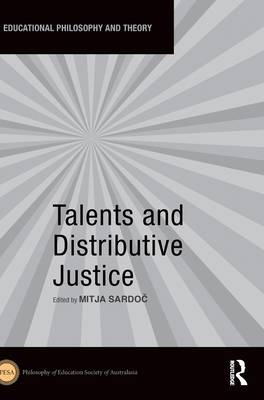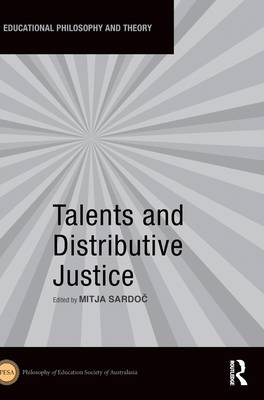
- Afhalen na 1 uur in een winkel met voorraad
- Gratis thuislevering in België vanaf € 30
- Ruim aanbod met 7 miljoen producten
- Afhalen na 1 uur in een winkel met voorraad
- Gratis thuislevering in België vanaf € 30
- Ruim aanbod met 7 miljoen producten
Talents and Distributive Justice
Omschrijving
For much of its history, the notion of talent has been associated with the idea of 'careers open to talent'. Its emancipatory promise of upward social mobility has ultimately radically transformed the distribution of advantaged social positions and has had a lasting influence on the very idea of social status itself. Besides its inextricable link with equality of educational opportunity, the notion of talent also came to be associated with some of the most pressing contemporary issues as diverse as the 'war for talent', brain drain, immigration policies, talent management, global meritocracy, the 'excellence gap', the 'ownership' of natural resources, ability taxation, etc.
Nevertheless, while central to egalitarian conceptions of distributive justice, the notion of talent remains to a large extent absent from the voluminous literature on these issues. Unlike concepts traditionally associated with distributive justice, such as fairness, (in)equality, equality of opportunity as well as justice itself, the notion of talent has received only limited examination. This volume brings together a set of contributions discussing some of the most pressing problems and challenges arising out of a reductionist understanding of talents' anatomy, a distorted characterisation of their overall distributive value or talents' non-voluntaristic nature and many other issues revolving around talents, which existing conceptions of distributive justice in education leave either neglected or outrightly ignored.
The chapters in this book were originally published in the journal, Educational Philosophy and Theory.
Specificaties
Betrokkenen
- Uitgeverij:
Inhoud
- Aantal bladzijden:
- 102
- Taal:
- Engels
- Reeks:
Eigenschappen
- Productcode (EAN):
- 9781032342627
- Verschijningsdatum:
- 5/09/2022
- Uitvoering:
- Hardcover
- Formaat:
- Genaaid
- Afmetingen:
- 170 mm x 244 mm
- Gewicht:
- 385 g

Alleen bij Standaard Boekhandel
Beoordelingen
We publiceren alleen reviews die voldoen aan de voorwaarden voor reviews. Bekijk onze voorwaarden voor reviews.










